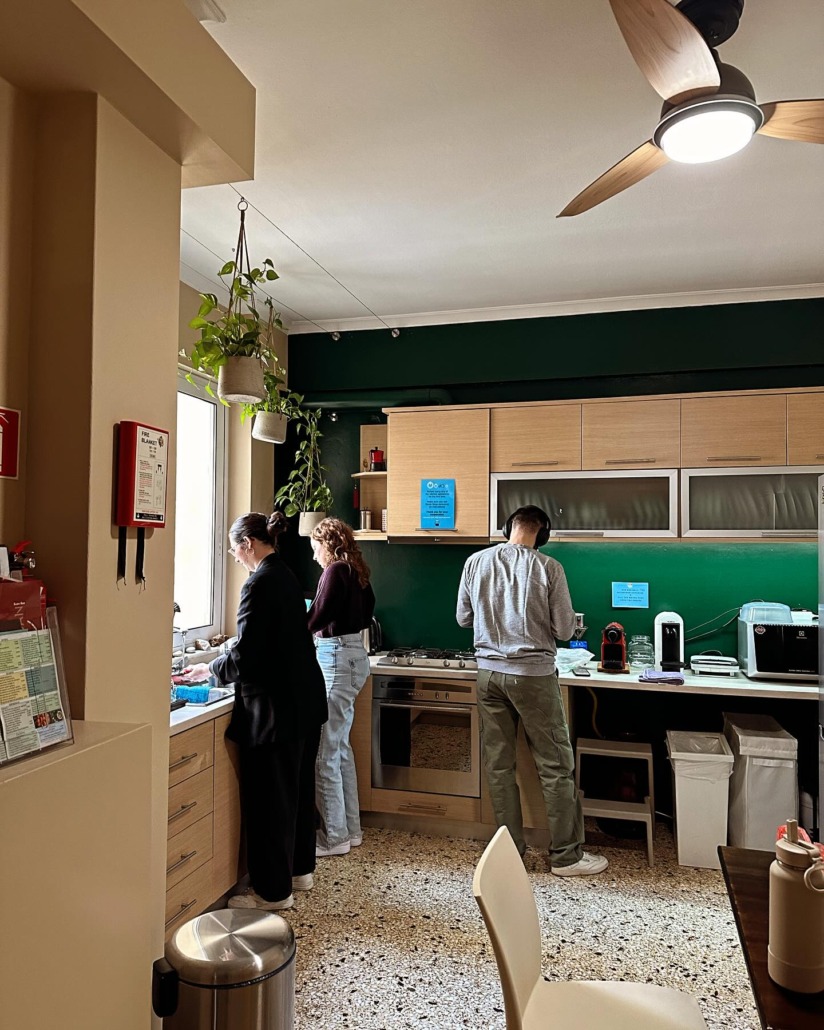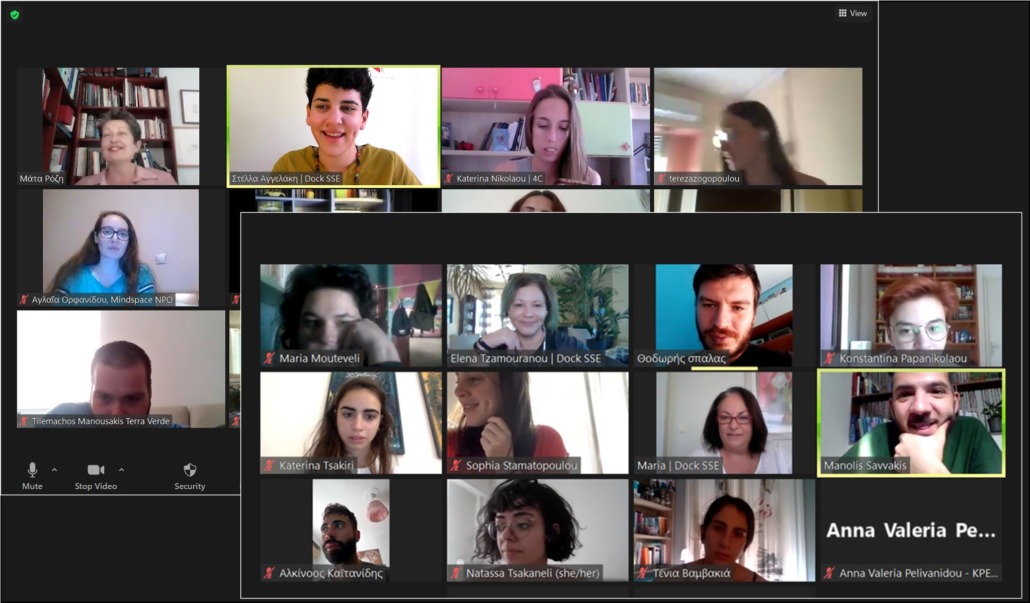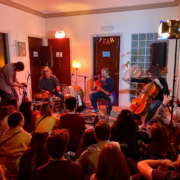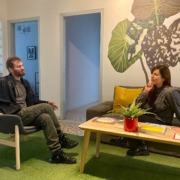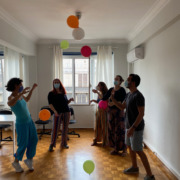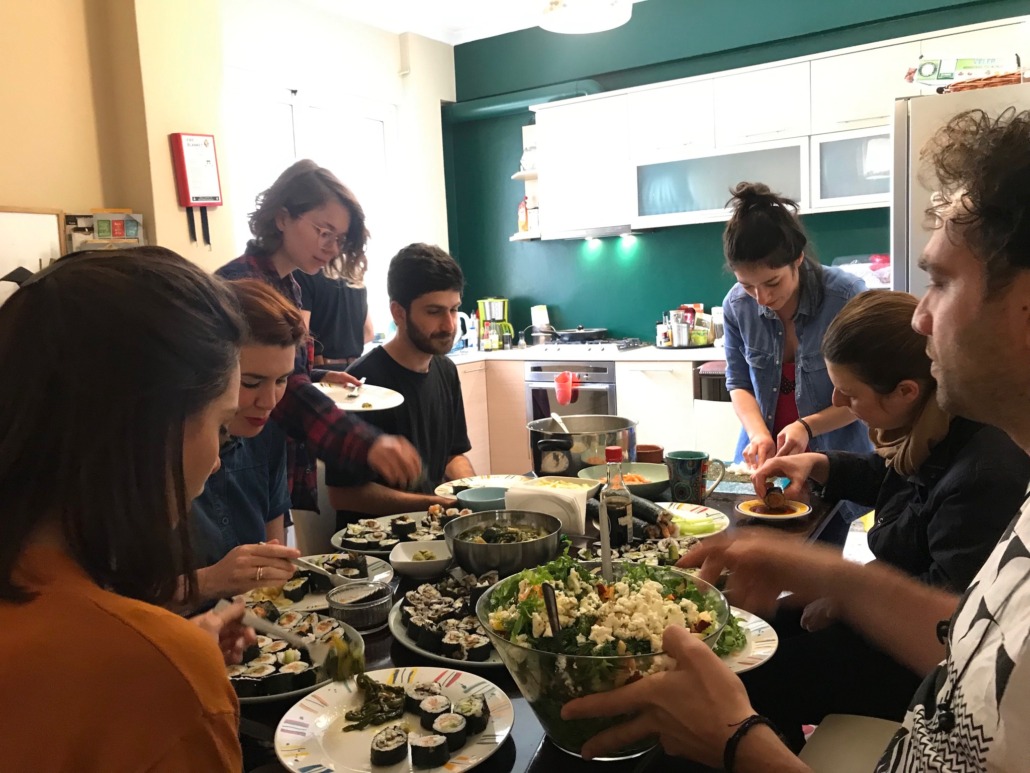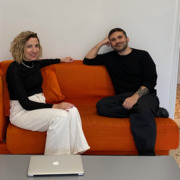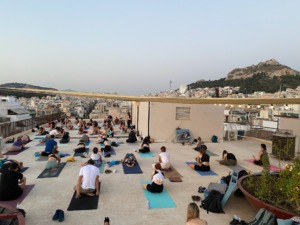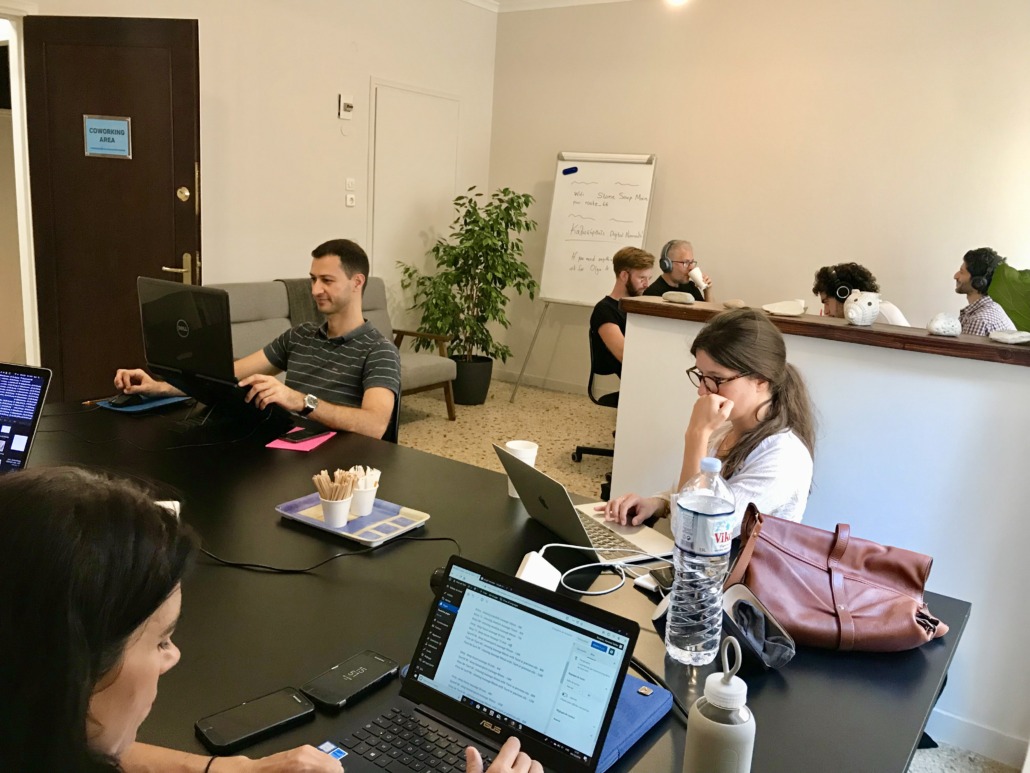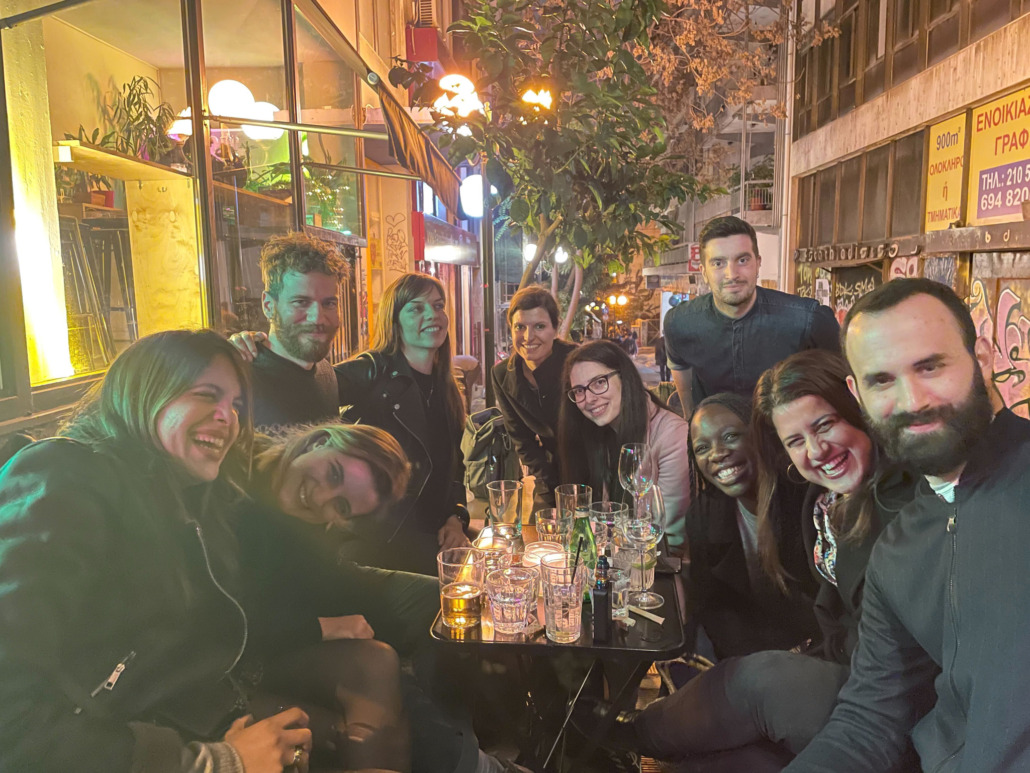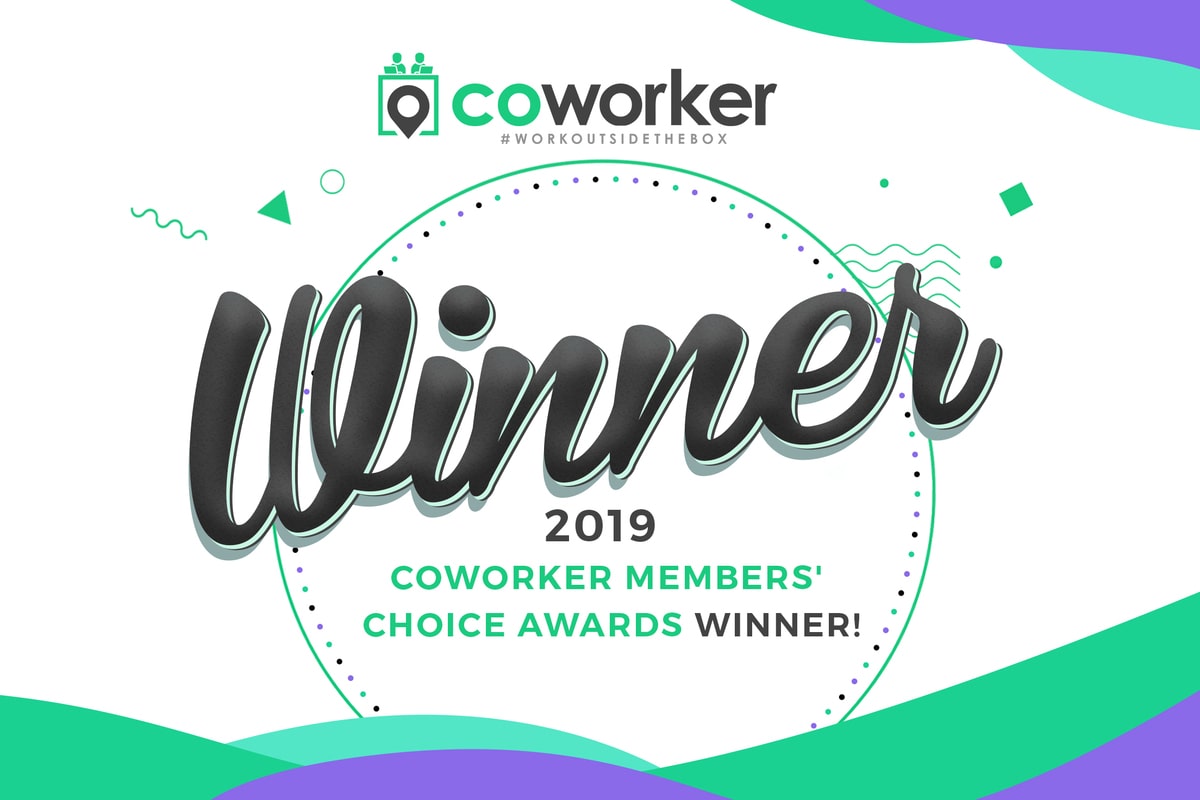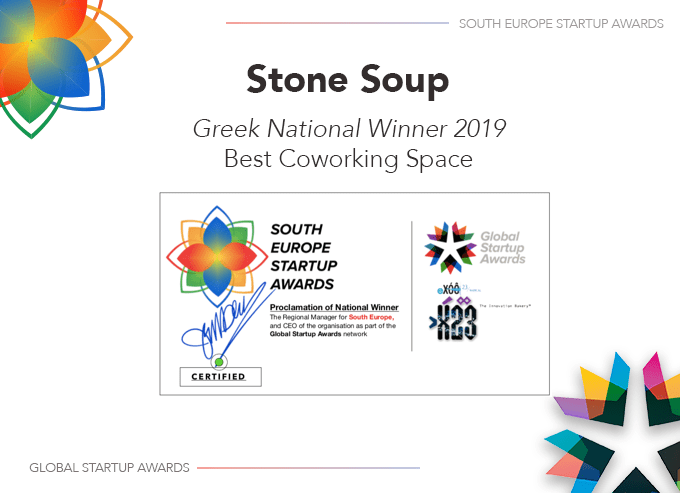Ingredients for a tasty coworking experience
Coworking spaces have established themselves as the “new normal” and their fundamental characteristic is a sense of “community” and “collaboration”. Coworking communities are a transformed version of the traditional workplaces which are slowly decreasing in size as an aftermath of the pandemic crisis.
The coworking space is a new type of workplace: heterogeneous professionals, in terms of employment, their field of work, organizational status, and relationships, work all together in the same space.
This broad definition is due to the fact that there is no common interpretation of coworking in the academic literature. It is not a coherent phenomenon but a “new normal” based on the values of collaboration, openness, community, accessibility and sustainability, which each organization interprets ad hoc.
Uda’s (2013) definition of coworking spaces is a widely accepted one and goes as follows: “it is a way of working in which individuals gather in a space to create value while sharing information and knowledge through communication and collaborating under conditions of their choosing”.
We all agree that the practice of coworking in a space is a hybrid of remote working and working from a flexible office that does not commit you to anything!
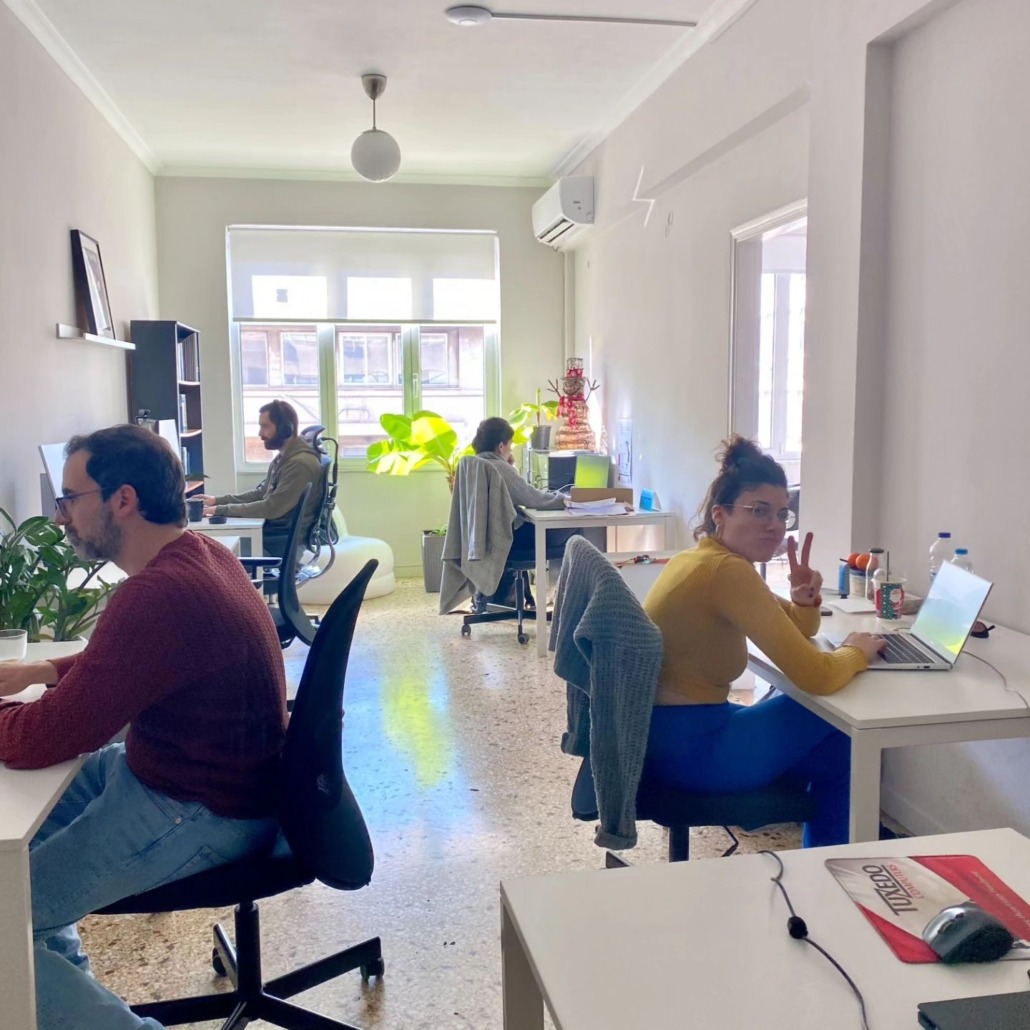
The importance of co-creative work
Co-creative work is linked to the concept of “hubs”. Their structure and content can take various forms, such as coworking spaces, studios, clusters, incubators, accelerators etc. Often the boundaries between these are blurred and there are no clear definitions.
Co-creative work is a manifestation of affective creative labor and its essential ingredients are proximity and co-location. These two characteristics, together with inclusivity, are usually necessary to bring out a complete profile of a coworking space.
The importance of informality as a component of openness is also in the core of coworking. Informal relationships are truly motivating. When it comes to joining coworking spaces such as Stone Soup, we are proud of our coziness!

